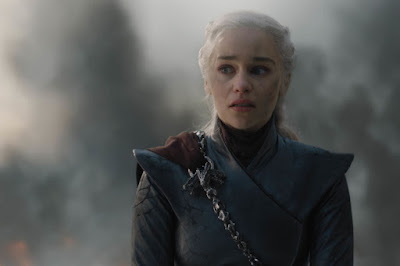With the release of Disney's live action Beauty and the Beast in theatres, I did what any fan that grew up in the Nineties would do: watched the original animated version instead. I'll probably see the new one eventually (if not simply to complain about it) but my philosophy is that if you want to remake something, do so because you can make the original better. And in the case of the animated Beauty and the Beast, you can't improve on perfection.
But I'm not actually here to talk about Disney fairy tales or their remakes – instead I want to discuss two lines that caught my attention as I watched the animated film for what must have been the hundredth or so time. When Belle and her father are trapped in the cellar as Gaston and the townsfolk ride out to confront the Beast at his castle, Belle turns to her father and cries: "this is all my fault!"
Later she repeats the words when cradling the Beast's body in her arms, telling him: "this is all my fault; if only I'd gotten here sooner."
The words rang a bell, but it wasn't until reading this review of Aladdin that I realized why. In that movie the protagonist has a line that's almost identical (at least in sentiment) to Belle's, crying: "this is all my fault – I should have freed the genie when I had the chance!"
So what point am I trying to make here? The link above points out something interesting: that when Aladdin admits blame for the situation he's found himself in, it's actually true. He should have freed the genie when he had the chance. Breaking his initial promise to do so after his first two wishes had been granted gave Jafar the opportunity to steal the genie's lamp and wreak havoc on Agrabah.
And it was Aladdin's own insecurities that led to this decision, making it a mistake born out of the character's foibles. It's a bad choice not made accidentally or without full knowledge of the situation – but out of fear and selfishness.
Compare this with Belle, who twice states that everything is her fault, and yet clearly can't be blamed for any of the terrible events that occur in the movie. Perhaps she's holding herself responsible for showing Gaston and the townsfolk an image of Beast in the magic mirror? If so, the audience can't be too hard on her considering she did it to save her father from being dragged off to the asylum.
And her statement that: "if only I'd gotten here sooner"? Come on, she was clearly travelling as fast as she could, and I'm not sure what she could have done to interrupt the Gaston/Beast fight if she had returned a few seconds earlier anyway.
It made me realize that the words: "it's all my fault" are uttered quite a lot in movies/television by a variety of different protagonists. Something terrible has happened, and because they're the main character, they are guilt-ridden. The blame lies with them, even when it clearly doesn't.












